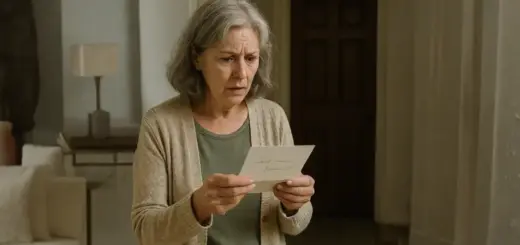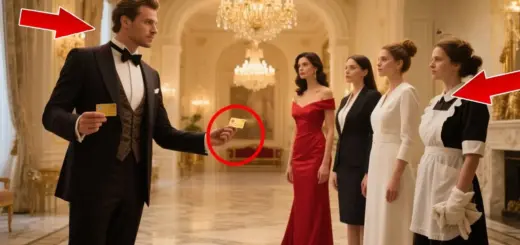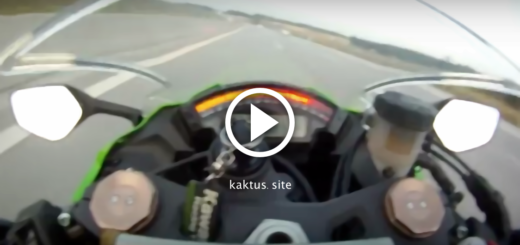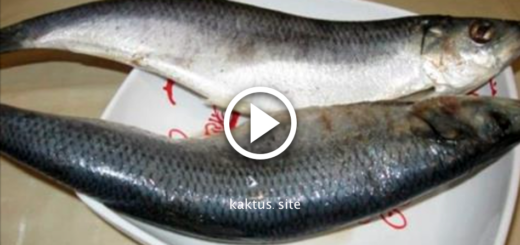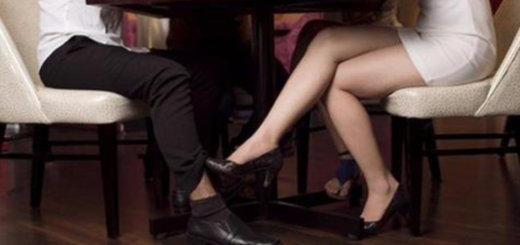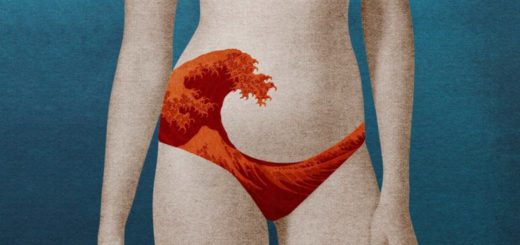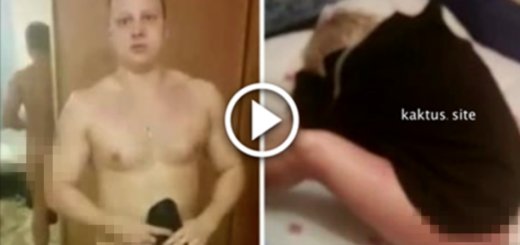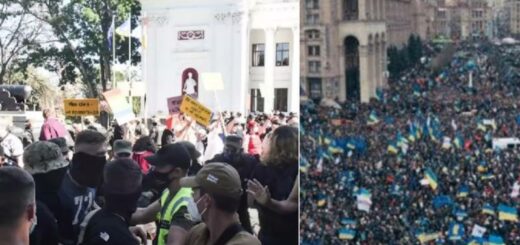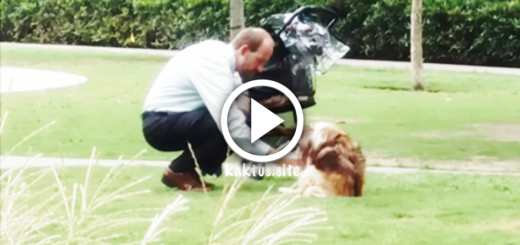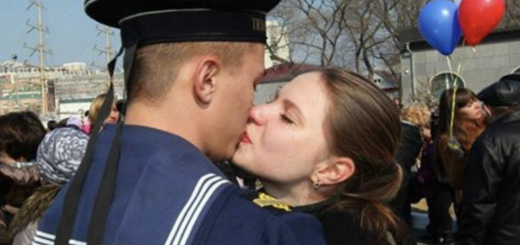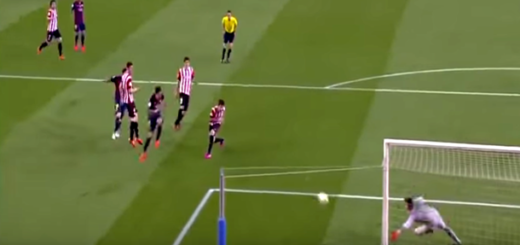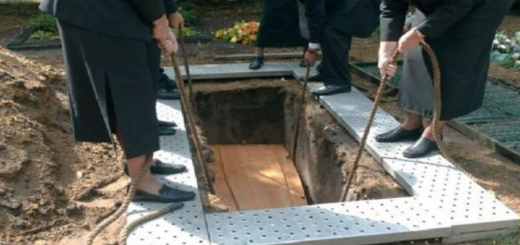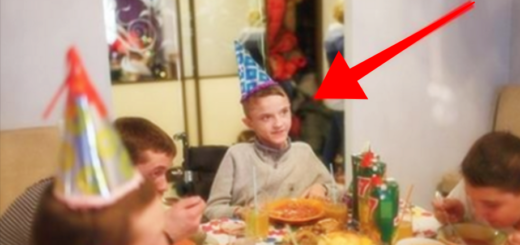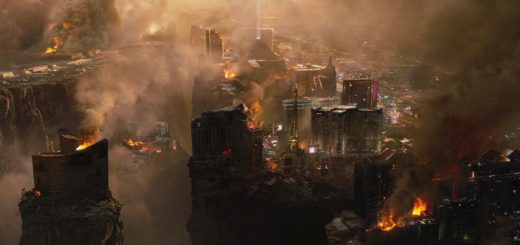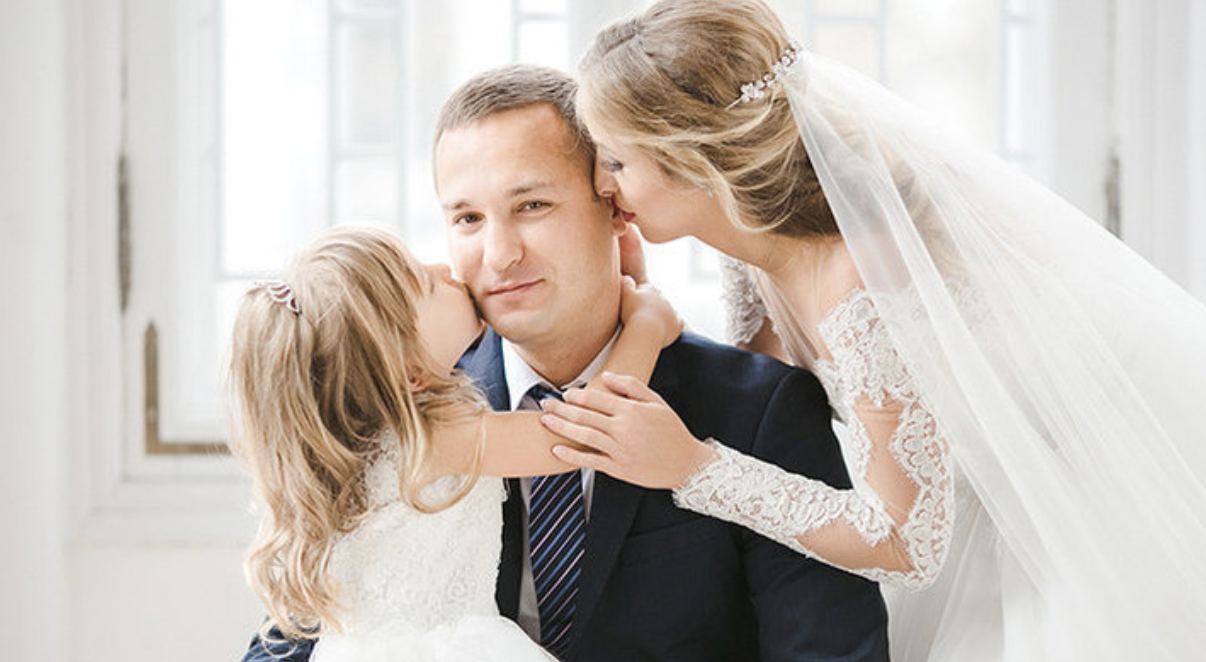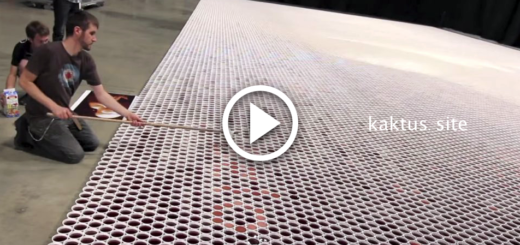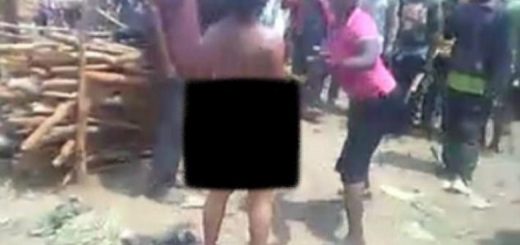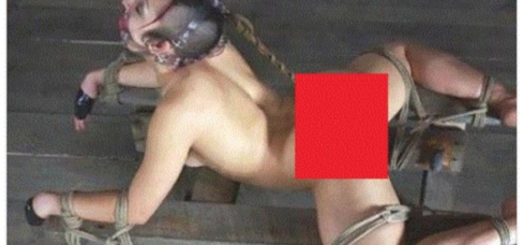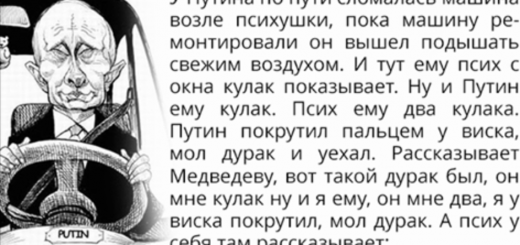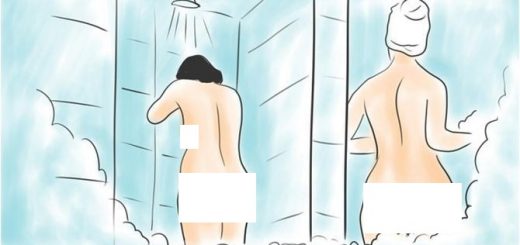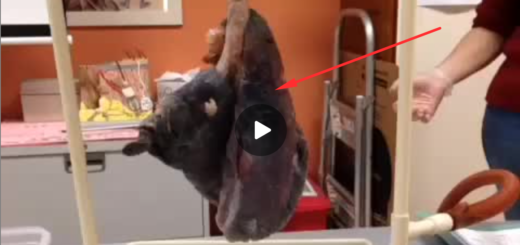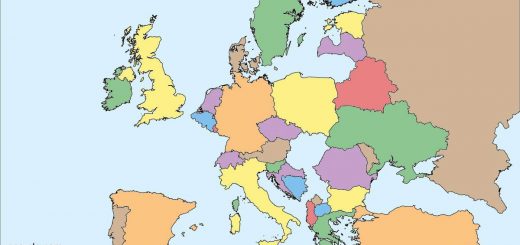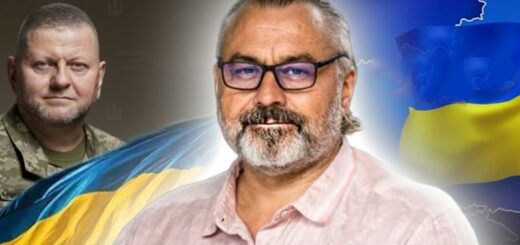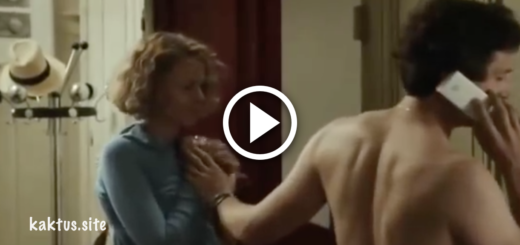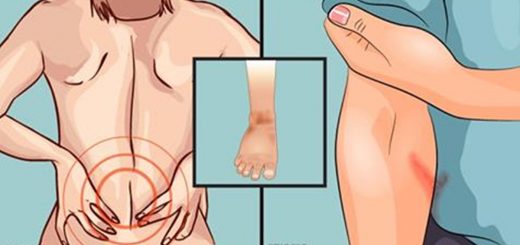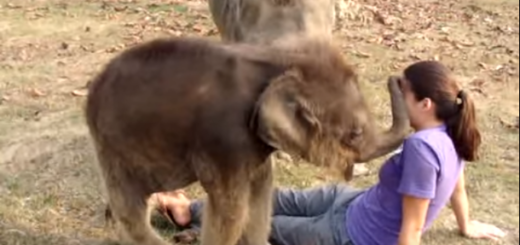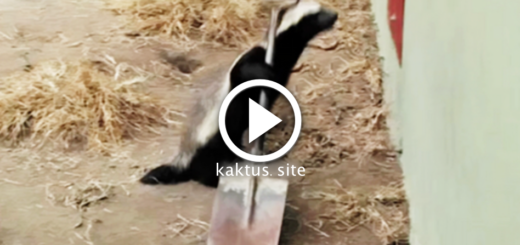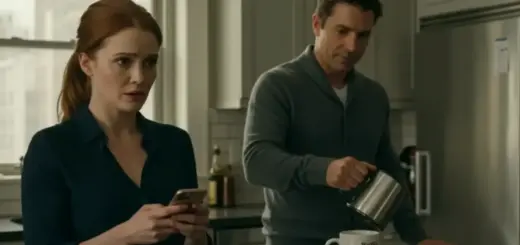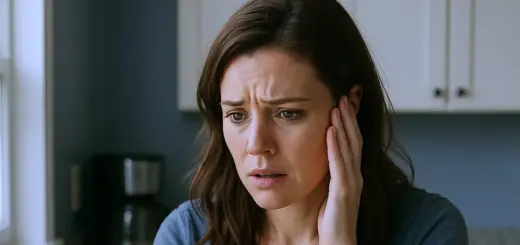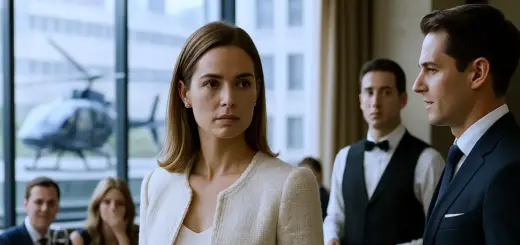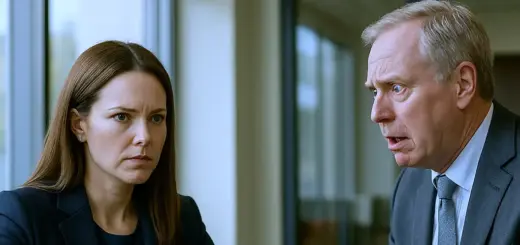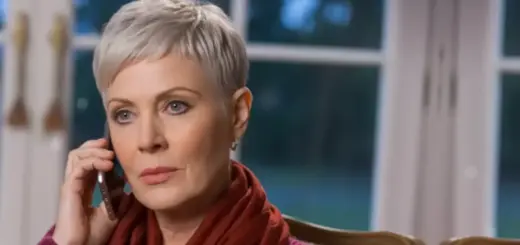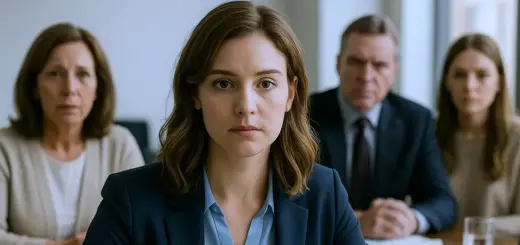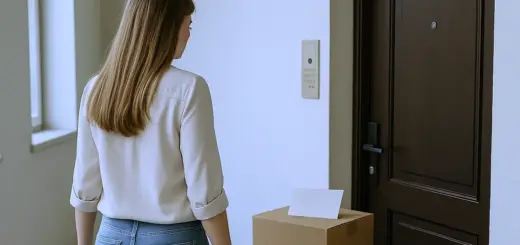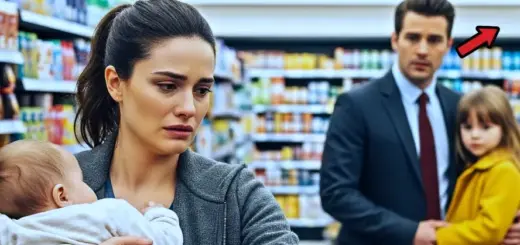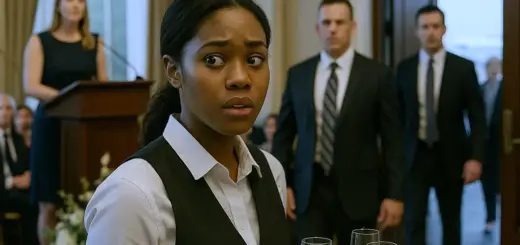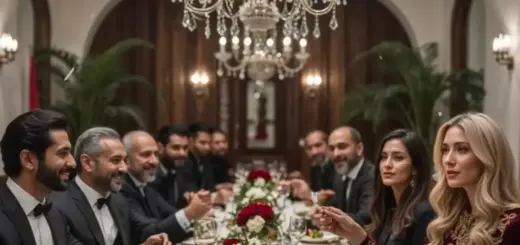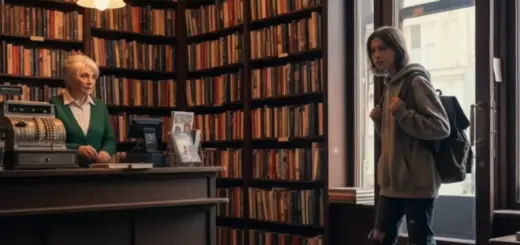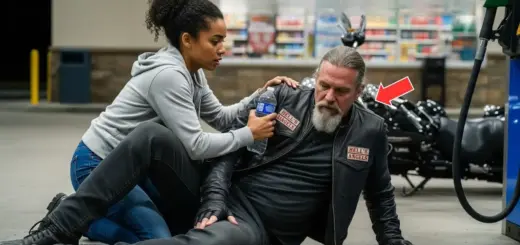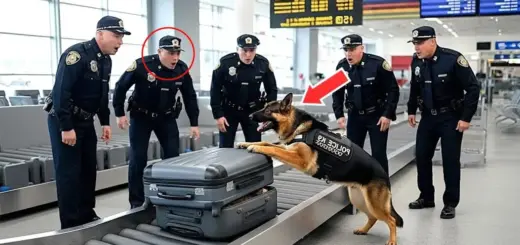I waited. Robert’s second letter had been addressed to Albert, explaining everything, not just the facts of what had happened, but the emotions behind it, the fear, the desperation, the love that had driven every choice. I’d read it once with James Thornton’s permission before it went into evidence. It had made me cry for days.
«He loved me,» Albert continued, his voice thick. «I knew that intellectually, but I’d convinced myself that love was… conditional, that if he’d really loved me, he wouldn’t have built our life on a lie.»
«And now?»
«Now I understand that he built our life on a sacrifice. He saw an opportunity to give us something better, something he’d never had. And he took it, even knowing the risk, even knowing he’d have to carry that weight forever.»
Albert looked up at me, his eyes red. «I spent 10 years hating him for being imperfect, for not being the hero I’d imagined. And then I let that hatred make me into someone even worse.»
I reached across the table and covered his hand with mine. «You chose right when it mattered most. You stood between me and a loaded gun. That’s not nothing, Albert.»
«It should have been sooner. I should have seen what Carver was doing, should have questioned…» His voice broke. «I almost got you killed, Mom. I almost became an accomplice to murder because I was so caught up in protecting my own image, my own reputation.»
«But you didn’t. You stopped. You made a choice.»
«At the last possible second. After months of working against you. Trying to have you declared incompetent. Believing every lie Carver fed me.»
He pulled his hand back and stood up, pacing to the window. «The lawyer Dad wanted me to read the letter with. The one who was supposed to be executor of his will. Carver got to him first. Told him I was concerned about your mental state. Asked him to recommend doctors who could evaluate you. I thought I was being responsible. Thought I was protecting the family.»
I joined him at the window. Looking out at the land Robert and I had built together.
«Carver was good at manipulation. He had practice. He knew exactly what buttons to push. What fears to exploit. You’re not the first person he’s fooled. And you wouldn’t have been the last.»
«That doesn’t excuse it.»
«No,» I agreed. «It doesn’t. But understanding it is the first step to making sure it doesn’t happen again.»
Albert was quiet for a long moment. Then, «I saw Rachel yesterday. At the county jail. She asked me to write a letter to the judge, asking for leniency.»
«Are you going to?»
«I told her no.» He turned to face me. «I told her that what she did, helping Carver burn your house, destroy evidence, trap you… That was unforgivable. That even if we’d both been wrong about Dad’s choices, what she chose to do was something else entirely. Something criminal.»
«How did she take it?»
«She said I was choosing you over her. That I’d regret it.» He laughed bitterly. «She still doesn’t get it. She still thinks this is about sides, about loyalty, about who wins. She doesn’t understand that it’s about right and wrong.»
I thought about Rachel. About how she’d smiled when suggesting care facilities. How she’d held that lighter to the photograph. Some people could be saved from their own worst impulses. Others couldn’t.
«The divorce papers came through last week,» Albert continued. «It’s final. She gets nothing from me, and I get nothing from her. Clean break.»
«I’m sorry.»
«I’m not. Not anymore.» He looked at me with something like his father’s determination. «Mom, I know you said we could talk about what comes next, but I need to say something first. I’m not asking for forgiveness. I don’t deserve it. What I did, what I tried to do to you… That’s something I’ll have to live with forever.»
«Albert, please, let me finish.» He took a deep breath. «But I want to try to be better. To be the man Dad hoped I’d be. The man you raised me to be before I lost my way. And I know that starts with actions, not words. So I’m asking, can I help with the farm? Not as an owner, not as someone with any claim to it. Just as someone who wants to work, to learn, to rebuild what I helped damage.»
I studied my son, the gray showing at his temples now, the lines around his eyes that had deepened over these past three months. He looked older, wearier, but also somehow more solid, more real.
«The spring planting starts in two weeks,» I said slowly. «The orchard needs pruning. The north fence needs repair. There’s a new irrigation system being installed that I could use help with.»
Hope flickered in his eyes. «I could do that. I could do all of that.»
«It’s hard work. Long days. Your hands will blister and your back will ache and you’ll go home exhausted every night.»
«I know.»
«And at the end of it, I still might not trust you. I still might decide this farm is mine alone, that you lost your right to any part of it when you tried to take it from me.»
«I understand.»
I looked out at the orchard again, at the land that had cost Robert his integrity, his peace of mind, and ultimately his life. The land that I’d fought to keep, that I’d nearly died protecting. It was just land, just trees and soil and hard work. But it was also legacy, family, the physical manifestation of every choice we’d made, good and bad.
«Be here at 6 a.m.,» I said. «Bring work gloves and wear clothes you don’t mind ruining.»
Albert’s face transformed. «Thank you, Mom. Thank you.»
«Don’t thank me yet. We’ll see if you last a week.»
But I was smiling as I said it, and so was he.
After Albert left, I walked out to the orchard alone. It was what I did most evenings now, a ritual of remembrance and renewal. I touched the bark of the trees Robert and I had planted together, noted which ones needed attention, planned the season ahead.
At the largest tree, I stopped. Someone had left flowers, Agent Morrison, who visited occasionally to update me on the case. She’d become something like a friend, this federal agent who understood that justice was more than just closing cases.
«Mrs. Hartwell?»
I turned to find James Thornton walking up the path, briefcase in hand. He visited too, usually with documents that needed signing or news about William Morse’s estate. The $4 million was mine now, legally and completely. I’d set most of it aside, unsure what to do with money that carried such weight.
«James,» I said warmly, «I wasn’t expecting you today.»
«I have news.» He was smiling, which usually meant good news. «The last of Carver’s associates took a plea deal this morning. Morrison says they have enough now to put him away for life, possibly multiple life sentences. It’s over, Diane, really over.»
I felt something loosen in my chest, a tension I’d been carrying for so long I’d forgotten it was there. «Thank you, for everything, for believing me, for helping me, for…»
«For doing my job?» He shook his head. «Diane, you saved yourself. I just provided a car and some documentation. Everything else, the courage, the intelligence, the sheer determination to see it through. That was all you.»
«Robert would have been proud,» I said softly.
«Robert would have been grateful,» Thornton corrected. «He left you the tools, but you’re the one who figured out how to use them. That letter he left… He said you were smarter than anyone gave you credit for. He was right, but even he didn’t know how right.»
We stood in comfortable silence for a moment, looking out over the orchard. The sun was setting, painting the sky in shades of orange and pink.
«What will you do now?» Thornton asked. «With the farm? With the money? With everything?»
I’d been thinking about that question for weeks. The truth was, I didn’t need to do anything dramatic. I didn’t need to start a foundation or travel the world or make grand gestures. Those were the fantasies of people who didn’t understand that sometimes the victory was simply in continuing. In surviving. In choosing to stay and build despite everything.
«I’m going to run my farm,» I said. «I’m going to repair what was damaged and plant what needs planting. I’m going to watch my son try to become a better man and decide, season by season, whether I believe his efforts are genuine. I’m going to have coffee with Sheriff Daniels once a week and dinner with Sharon Morrison once a month. I’m going to live.»
«That’s it? That’s everything?»
I smiled at him. «I’m 63 years old, James. I’ve survived my husband’s death, my son’s betrayal, an attempted murder, and a conspiracy three decades in the making. I’ve learned that I’m stronger than I thought, smarter than I was given credit for, and more capable than anyone, including myself, believed. That’s not nothing. That’s not small. That’s a victory worth celebrating every single day.»
Thornton nodded slowly. «You’re remarkable, Diane.»
«No,» I said. «I’m just what every woman my age is. A survivor who learned to use her intelligence instead of accepting others’ definitions of her limitations. We’re everywhere, James. In every town. Every family. Every situation where people underestimate us because we’re old or female or just mothers or farmers or ordinary women. We’re the ones who remember everything, who notice what others miss, who outlast the people who think youth and strength are the only powers that matter.»
I turned back to the largest apple tree, to the spot where Robert had buried his secrets. «He thought he was protecting me by keeping me ignorant. But ignorance isn’t protection. It’s just another kind of trap. What protected me was 40 years of learning this land, of building strength through hard work, of developing the kind of wisdom that only comes from living fully and paying attention.»
«Will you tell your story?» Thornton asked. «The media has been calling. There’s interest in…»
«No.» My voice was firm. «This isn’t a story for public consumption. This is my life, my family’s private pain and private redemption. Let them write about Carver and his crimes. Let them celebrate the FBI’s victory. But my part in it, that stays here, on this land, with the people who lived it.»
As Thornton walked back to his car, I remained under the apple tree, watching the last light fade from the sky. Tomorrow, Albert would arrive at 6 a.m., and we’d begin the slow process of maybe, possibly, rebuilding something resembling a family.
Or maybe we wouldn’t. Maybe he’d last a week and decide farm work was too hard, or I’d decide his presence was too painful. Either way, I’d be fine.
The farm would continue. The seasons would turn. The apples would grow. And I would be here, tending what mattered, protecting what was mine, living the life I’d fought for.
The phone rang in my pocket. My new phone, with a new number only a handful of people had. I checked the screen. Albert.
For a moment, I hesitated, feeling an echo of those nights when his calls had been threats disguised as concern. But that was then. This was now. And now was full of possibility, however fragile.
«Hello, Albert,» I said.
«Hi, Mom. I just wanted to say, I’m looking forward to tomorrow. To working with you. To learning from you.»
«6 a.m.,» I reminded him. «Don’t be late.»
«I won’t. Mom, I love you.»
The words hung in the air between us, weighted with all the months of betrayal and hurt, but also with the possibility of something better.
«I know,» I said finally. «We’ll talk tomorrow.»
I hung up and slipped the phone back into my pocket. The first stars were appearing in the darkening sky. The same stars that had witnessed everything. Robert’s original bargain, my desperate flight, the final confrontation. And now this quiet moment of maybe peace.
I walked back to the house. My house. Its windows glowing warm against the twilight.
Inside, there was coffee to make for tomorrow’s early start. Accounts to review. A life to continue living.
I was 63 years old. I had survived. I had won. And tomorrow, I would wake up and do the work that needed doing.
The same as I’d done for 40 years. The same as I’d do for however many years remained to me.
Because that was the real victory. Not the dramatic confrontation or the evidence or the arrests. The real victory was in continuing. In refusing to be diminished, dismissed, or destroyed by people who thought age and gender made me weak.
I was Diane Hartwell. I ran a hundred-acre farm. I’d buried one husband and rebuilt my life. I’d outwitted criminals and survived my son’s betrayal. I’d climbed down a trellis at 63 and dug up evidence in the middle of the night and faced down a loaded gun without flinching.
And tomorrow, I’d prune apple trees. That was strength. That was wisdom. That was victory.
I turned off the porch light and locked the door. The lock I’d changed. To a system only I controlled. And smiled.
The house settled around me with its familiar sounds. No longer threatening. No longer full of secrets. Just home. Finally, truly, home.
Now tell me, what would you have done if you were in my place? Let me know in the comments.

